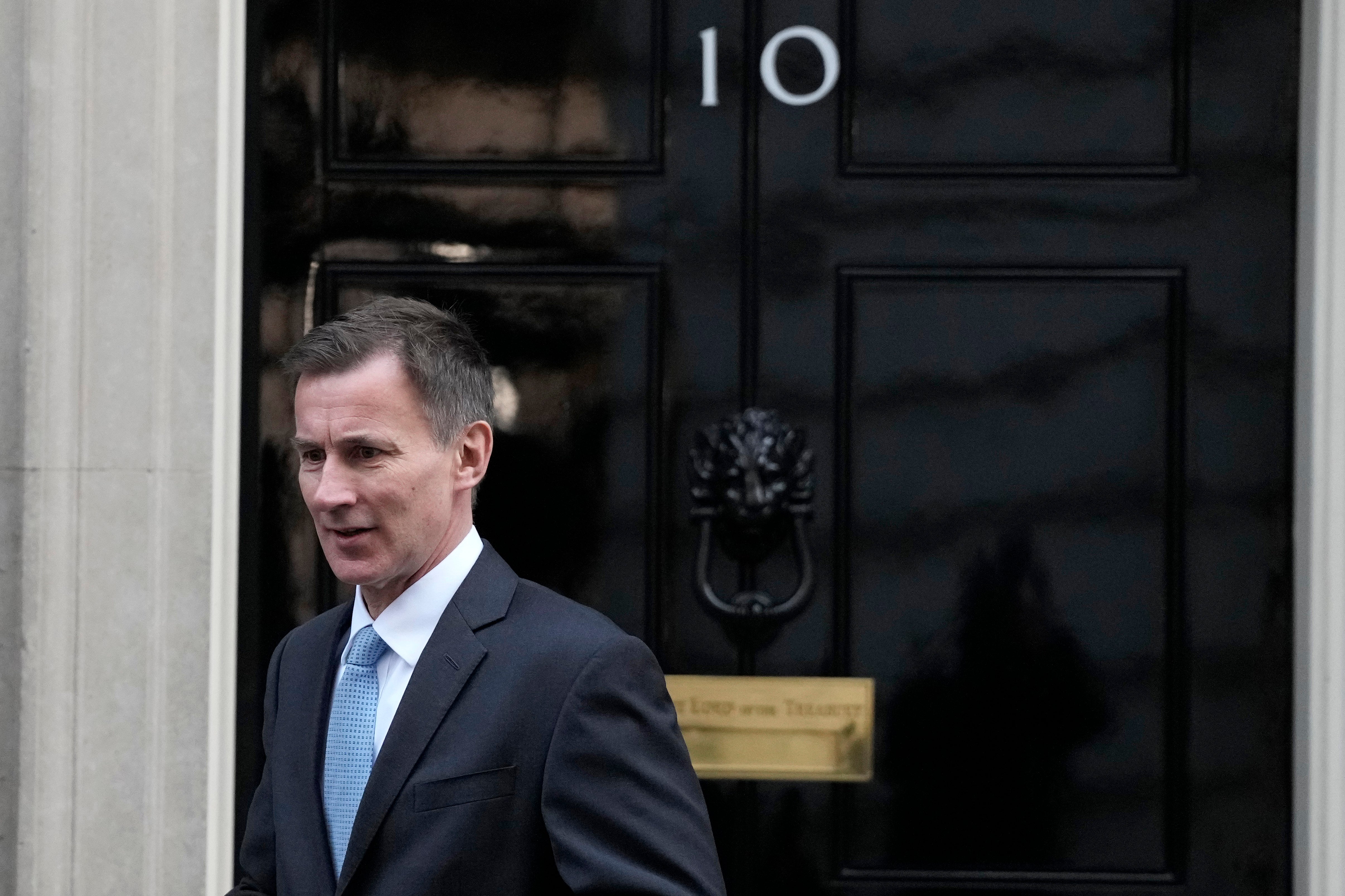UK's Treasury chief accepts that recession may be necessary to get inflation down
Britain’s Treasury chief says he would be prepared to see the British economy slip back into recession if further interest rate hikes are necessary to bring down inflation

Your support helps us to tell the story
From reproductive rights to climate change to Big Tech, The Independent is on the ground when the story is developing. Whether it's investigating the financials of Elon Musk's pro-Trump PAC or producing our latest documentary, 'The A Word', which shines a light on the American women fighting for reproductive rights, we know how important it is to parse out the facts from the messaging.
At such a critical moment in US history, we need reporters on the ground. Your donation allows us to keep sending journalists to speak to both sides of the story.
The Independent is trusted by Americans across the entire political spectrum. And unlike many other quality news outlets, we choose not to lock Americans out of our reporting and analysis with paywalls. We believe quality journalism should be available to everyone, paid for by those who can afford it.
Your support makes all the difference.Britain's Treasury chief said he would be prepared to see the U.K. economy slip back into recession if further interest rate hikes are necessary to bring down inflation.
With the Bank of England expected to keep raising rates following higher-than-anticipated inflation figures this week, Jeremy Hunt said it was necessary to prioritize measures to slow the pace of price increases.
In an interview with Sky News that aired Friday, Hunt said the “only path to sustainable growth” is to bring inflation under control.
Asked if he was comfortable with further rate hikes even if it could precipitate a recession, Hunt said, “Yes, because in the end, inflation is a source of instability. ... It is not a trade-off between tackling inflation and recession."
Like other central banks, the Bank of England has been raising interest rates aggressively over the past 18 months or so to a 15-year high of 4.5% after inflation spiked sharply, first because of bottlenecks caused by the coronavirus pandemic and then Russia’s invasion of Ukraine, which caused energy and food prices to surge.
Higher borrowing costs are aimed at making it more expensive for individuals and businesses to borrow, which dampens demand in the economy.
“If we want to have prosperity, to grow the economy, to reduce the risk of recession, we have to support the Bank of England in the difficult decisions that they take," Hunt said.
There had been hope that the bank, whose primary task is to keep inflation at around 2%, may pause rate hikes but the inflation figures this week raised alarm bells that it will have to go on tightening monetary policy.
The consumer prices index eased to 8.7% in the year to April from 10.1% in March, largely because last year’s energy spike in the wake of the invasion of Ukraine dropped out of the annual comparison.
The decline wasn’t as big as anticipated, especially as prices in the wholesale gas market have been falling for months.
Since then, financial markets have priced in further rate hikes from the central bank in the coming months, possibly up to 5.5%, bad news for borrowers and those looking to get a new mortgage.
“The shock print for inflation this week has very quickly reset most forecasters' expectations of where the peak in the Bank of England rate will be," said Luke Hickmore, investment director at asset management firm abrdn.
Earlier this week, the International Monetary Fund predicted that the British economy would avoid falling into recession this year. However, its upgraded growth forecasts were released before the inflation figures, which led to the uptick in anticipated interest rates.